detail profile jacques duby
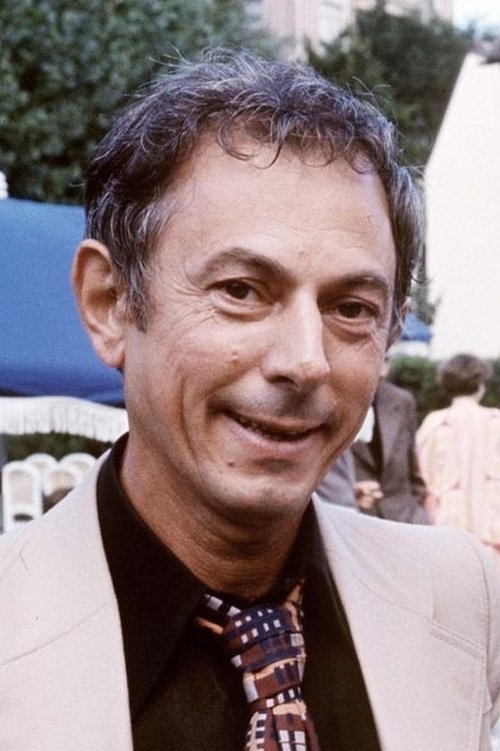
Riwayat Hidup
Jacques Duby (7 May 1922 – 15 February 2012) was a French stage, film and television actor.
He was born in Toulouse.
Some of his works include 101 Dalmatians (1961), Pinocchio (1968), and The Jungle Book (1967).
He also served as narrator in a French audiobook recording of Treasure Island released in 2011.
Source: Article "Jacques Duby" from Wikipedia in English, licensed under CC-BY-SA 3.
0.
Info Pribadi
Peran Yang Di Mainkan Jacques Duby
 A love triangle between a businessman...
A love triangle between a businessman...I'm Staying 2003
A love triangle between a businessman, his wife, and a writer.
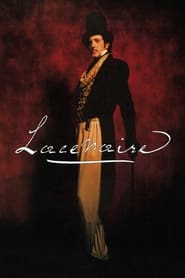 On 9 January 1836 Pierre Lacenaire goes to...
On 9 January 1836 Pierre Lacenaire goes to...The Elegant Criminal 1990
On 9 January 1836, Pierre Lacenaire goes to the guillotine, a murderer and a thief. He gives Allard, a police inspector, his life story, written while awaiting execution. He also asks Allard to care for Hermine, a lass to whom he has been guardian for more than ten years. In flashbacks, from the prison as Lacenaire writes, from Allard's study as he and Hermine read, and from other readers' memory after the book is published, we see Lacenaire's childhood as he stands up to bullies, including priests, his youthful thieving, his first murder, his brief army career, his seduction of a princess, and his affair with Avril, a young man who dies beside him.
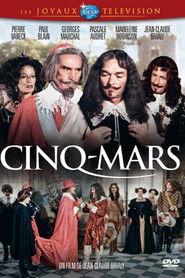 In the 17th century under Louis...
In the 17th century under Louis...Cinq-Mars 1981
In the 17th century, under Louis XIII, the policy of Cardinal de Richelieu aimed at the definitive establishment of a monarchic power, and gave rise to a struggle against the great feudal lords, who favored a weak central power. Numerous conspiracies against the Cardinal were led by the high nobility. The one led by Henri Coiffier de Ruzé d'Effiat, marquis de Cinq-Mars, was the last and most famous of them.
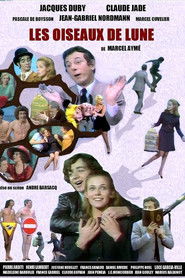 Valentin the general supervisor of a...
Valentin the general supervisor of a...Les Oiseaux de la lune 1974
Valentin, the general supervisor of a sub-prefecture cram school, has a strange power: all he has to do is wish for a certain person to turn into a bird, and the metamorphosis takes place and his victims grow wings. He's in love with Sylvie, the young lady coveted by all the local males. This is how an entire small population loses its human appearance.
 Marina and her boyfriend have an...
Marina and her boyfriend have an...The Sensuous Assassin 1970
Marina and her boyfriend have an argument while on a trip in France. While driving with the car among the cliffs, he starts speeding and the car falls into the sea. Marina can jump out of the car, but her boyfriend seems to be drowned. She gets to know his brother and he falls in love with her. But why does she always feel watched? What reasons are behind her strange behaviour anyway? Did she really murder her boyfriend? But is he dead anyway?
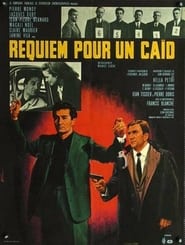 Police officer Antoine Delille is in...
Police officer Antoine Delille is in...Requiem pour un caïd 1964
Police officer Antoine Delille is in charge of putting an end to the activities of a "kingpin", Jo Pinelli, trafficker, racketeer and pimp. He has three women working for him, including Eva and Jeannette, and is currently "conditioning" a charming, naive Orly employee, with whom he poses as an honorable businessman. Inspector Delille's plan is to arrest Jo for some crime and, while he's being held at the P.J., to delve into his other criminal activities and confound him.
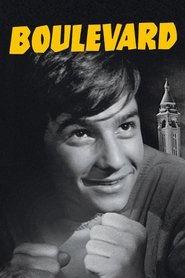 Boulevard focuses on Georges Jojo Castagnier...
Boulevard focuses on Georges Jojo Castagnier...Boulevard 1960
Boulevard focuses on Georges 'Jojo' Castagnier, an adolescent who lives in a poor room under the roof of a block of apartments in the Pigalle section of Paris. He ran away from home when he realized that his step-mother hated him from day-one. Among Jojo's many neighbors is the gorgeous Jenny Dorr , a nightclub dancer, whose lover he dreams of being. But, to Jojo's disappointment, Jenny becomes the lover of Dicky, a former boxer, who spends his time loafing about the Pigalle cafés. Jojo lacks for steady work, but manages to meet his financial obligations with a series of odd jobs. He tries selling magazines, which is a success for a while, though posing as Narcissus for two gay artists proves to be something of a disaster. Eventually, he woos Marietta, one of his other neighbors and a girl more suited to his age. But when things go really awry, Jojo becomes desperate and tries to commit suicide by jumping off the roof of his building
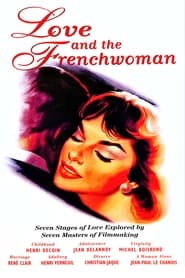 The seven stages in the life...
The seven stages in the life...Love and the Frenchwoman 1960
The seven stages in the life of the modern Frenchwomen are disclosed by seven directors in a witty way: 1 - Childhood, 2 - Adolescence, 3 - Virginity, 4 - Marriage, 5 - Adultery, 6 - Divorce, 7 - The Single Woman.
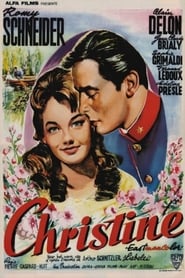 Vienna 1906 A passionate love story develops...
Vienna 1906 A passionate love story develops...Christine 1958
Vienna, 1906. A passionate love story develops between Franz Lobheiner and the young Christine. Lobheiner is, however, currently seeing the married Baroness von Eggersdorf. Upon learning of his wife's infidelity, the Baron von Eggersdorf provokes a duel with Lobheiner. But the former is no longer a real threat to the Baron. Lobheiner is now passionately in love with Christine. How will this love quartet end?
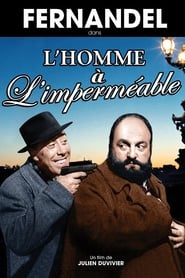 In the absence of his wife...
In the absence of his wife...The Man in the Raincoat 1957
In the absence of his wife, a clarinet player is induced by a friend to meet a call girl, but arrived after a crime. Perceived by some people leaving the scene of the crime covered by his raincoat, he became the only suspect for the police. His only hope is to discover the murderer before is name is mentionned publicly, specially in front of his wife.
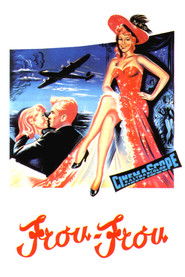 A story of the love of...
A story of the love of...Frou-Frou 1955
A story of the love of Frou-Frou - an actress and singer in the in the beginning of her career.
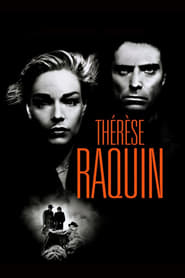 Starcrossed lovers Thrse and Laurent think...
Starcrossed lovers Thrse and Laurent think...Thérèse Raquin 1953
Star-crossed lovers Thérèse and Laurent think they've gotten away with murder after Thérèse's weakling husband "falls" from a speeding train. But when forced to contend with a blackmailer's demands and the mute accusations of Thérèse's mother-in-law, it's only a matter of time before the law, their passion or blind chance trips them up.
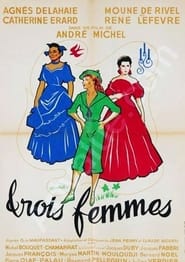 The short stories of Guy de...
The short stories of Guy de...Three Women 1952
The short stories of Guy de Maupassant enjoyed a renaissance in the early 1950s, thanks in great part to the Max Ophuls production Le Plaisir. In Trois Femmes, three De Maupassant stories are dramatized, each conveying the central theme of women falling in love. In the first, a black female carnival entertainer causes an uproar when she falls in love with a white soldier. In the second, a young bride is pressured into having a baby to collect a huge inheritance. And in the final episode, a pregnant girl is "adopted" and protected by a small circle of friends. In standard De Maupassant fashion, each of the three stories in Trois Femmes is capped by a surprise twist.
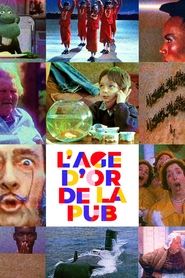
 A shady Parisian tries to take...
A shady Parisian tries to take...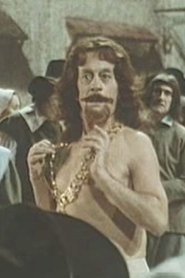 Two crooks think up a scheme...
Two crooks think up a scheme...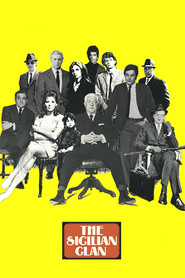 An ambitious mobster plans an elaborate...
An ambitious mobster plans an elaborate...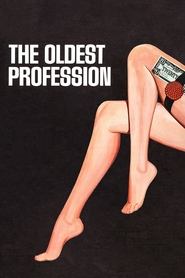 A collection of sketches that tells...
A collection of sketches that tells... Young handsome dashing but cynical Octave...
Young handsome dashing but cynical Octave...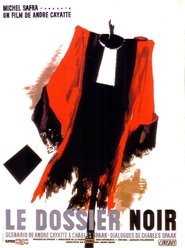 In the 1950s in a small...
In the 1950s in a small...